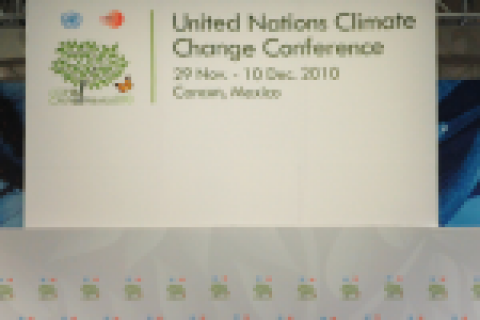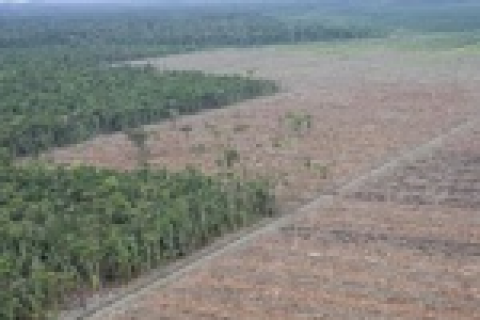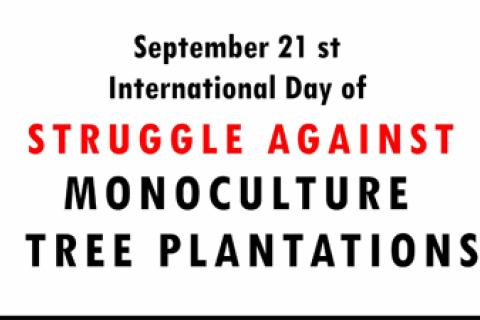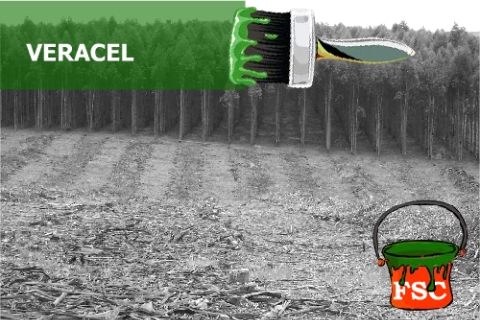NO REDD - A READER is a collection of articles written by REDD Monitor, Global Justice, Ecology Project, Censat Agua Viva, Amazon Watch, Acción Ecológica, COECOCEIBA-AT, OFRANEH, World Rainforest Movement, Carbon Trade Watch, RisingTide, ETC Group and Indigenous Environmental Network
Download the full document here
Other information
A controversial proposal to protect forests worldwide is on the table at the U.N. Climate Change Conference in Cancún. Reducing Emissions from Deforestation and Forest Degradation (REDD), would include forests in the emerging carbon markets, allowing governments and corporations to purchase permits to protect forests as a way to offset the carbon released into the atmosphere through its industrial pollution. Though often reported as a means to stop deforestation, there is widespread opposition to REDD from environmental and indigenous groups.
By Chris Lang -
If you’re looking for a list of what’s wrong with REDD, then look no further. The Climate Justice Research Project at Dartmouth College has just produced this top 10 list (fully referenced version below):
1. Calculation of offsets is highly sensitive to choice of baseline methods and data availability, raising the potential for fraudulent “hot air” resulting from corruption
The ITT oil exploration block, located within the borders of Ecuador’s Yasuní National Park, is an area of extraordinary biological diversity. The Ecuadorian proposal to leave the estimated 850 million barrels of oil reserves in this block untouched, in perpetuity (see WRM Bulletin Nº 157), marked a change of course in the right direction towards biodiversity conservation.
In defiance against Burma’s ruling military junta, farmers in the northern state of Kachin are fighting against a plantation company from destroying their lands and livelihoods.
The farmers accuse the Yuzana Company of large-scale destruction of forest in the Hugawng Valley, an area that also happens to comprise the world’s largest tiger reserve.
With a population of some 150 million people, the Nigerian economy has been relying for more than 50 years on oil extraction by foreign large corporations - with Shell at the top - in the Niger Delta remote region of mangrove creeks.
“The forest dependent people of India are raising their voice strongly against the loot of natural resources in the name of delivering development, saving the environment and combating climate change. They are bringing forth the issues of people’s political economy of protection of natural resources and protection of livelihood vis-à-vis the elite and capitalist interests on the natural resources.
For local peoples, tree plantations ar jails. September 21st, International Day of Struggle against Monoculture Tree Plantations
-
Local communities opposition? Use FSC and give a perfect finish to your plantations!
-
Kemenyan or locally known haminjon is a fragrant resin of benzoin. It has been cultivated and traded from Batak highlands of Indonesia's province of North Sumatra for centuries. Benzoin is produced from benzoin trees (Styrax benzoin) and is highly valued as ingredient in incense for burning in rituals ceremonies, for traditional and modern medicinal purposes, perfumery and for fragrant cigarettes.
A new negotiation round on climate change under the UN Climate Change Convention (UNFCCC) ended in Bonn on August 6.
The protracted UNFCCC process which is crucial for the future of Humankind has become a very complex scenario full of technicisms and rather difficult to follow by non “experts”. The main danger of such a tangled structure is that it hides vested interests, powerful lobbies, bullying attitudes and unilateral decisions from the more powerful sectors and countries.





